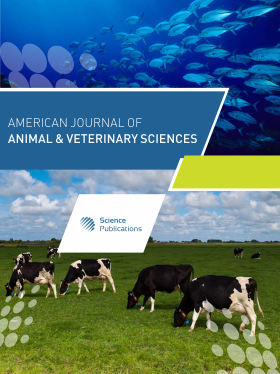Antibacterial Activity of Tali Bamboo (Gigantochloa apus) Leaf Extract to Inhibit Escherichia coli and Salmonella typhimurium
- 1 Research Center for Animal Husbandry, National Research and Innovation Agency, Indonesia
- 2 Department of Nutrition and Feed Technology, Faculty of Animal Science, IPB University, Indonesia
Abstract
Bamboo leaves contain phytochemical compounds that have the potential to act as antimicrobial agents in inhibiting pathogenic bacteria. This study aimed to evaluate the potential of tali bamboo (Gigantochloa apus) leaves extracted with different solvents to inhibit the growth of Escherichia coli and Salmonella typhimurium. The tali bamboo leaves were extracted using ethanol and methanol with a ratio of 1:10 between tali bamboo leaf and solvent. The antibacterial activity of bamboo leaf was carried out using the agar diffusion method at varying concentrations (0% - 0.08%), with cotrimoxazole was used as the positive control. Phytochemical analysis confirmed the presence of tannins, steroids, saponins, and flavonoids in bamboo tali leaf extract. The inhibition zone test showed that methanol extract of G. apus did not inhibit the growth of E. coli and S. typhimurium, whereas ethanol extract had weak antibacterial activity (clearing zone < 5 mm) with a minimum inhibitory concentration of 0.2% for E. coli and 0.3% for S. typhimurium. Based on the results, it can be concluded that ethanol extract of G. apus has the potential as a natural antibacterial agent against pathogenic bacteria.
DOI: https://doi.org/10.3844/ajavsp.2025.305.313

- 39 Views
- 9 Downloads
- 0 Citations
Download
Keywords
- Antibacterial Activity
- Bamboo Leaves
- MIC
- MBC
- Phytochemical Compound
